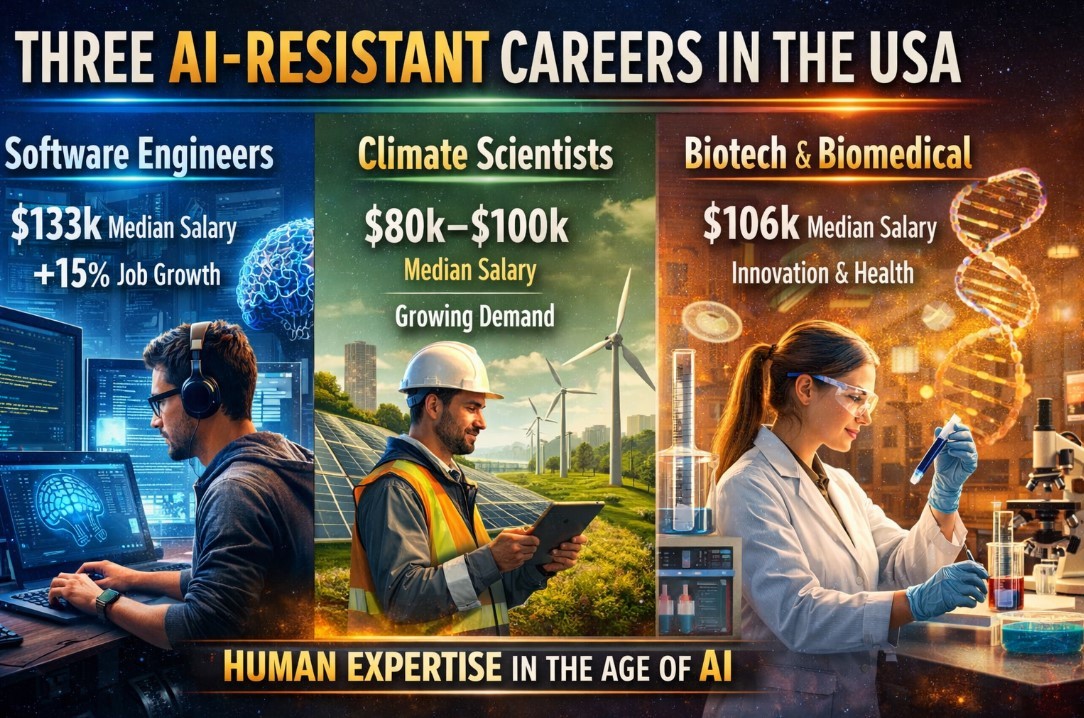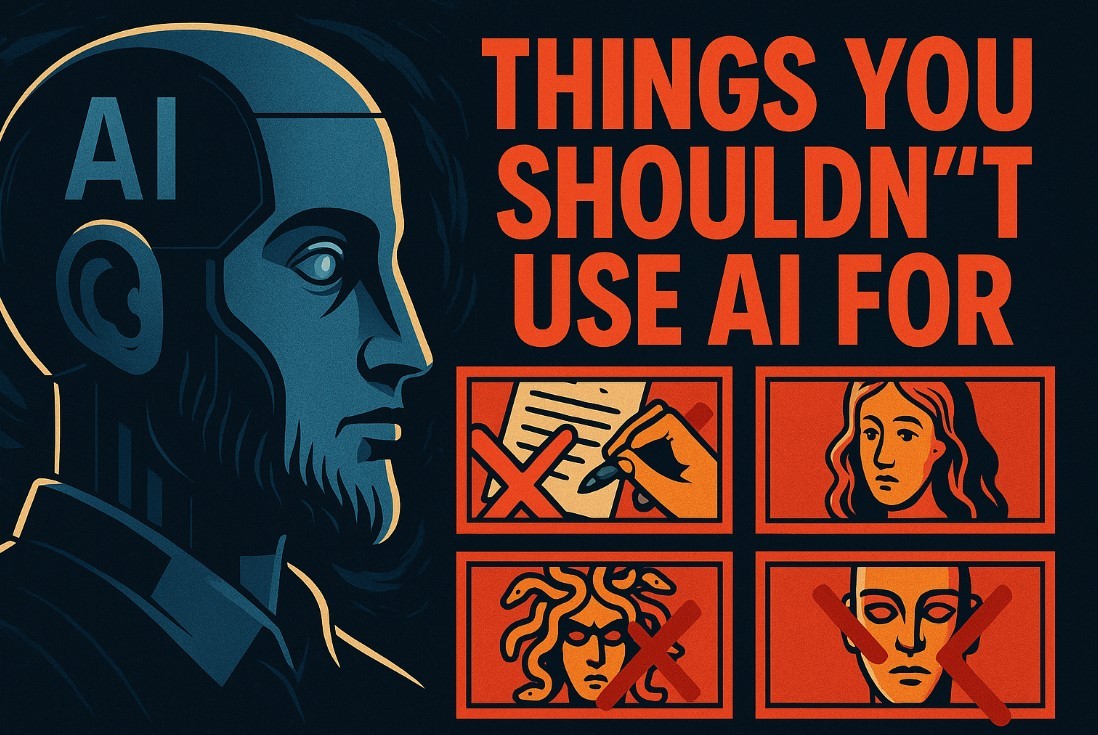5 Technologies Bringing the Dead Back to Life: Risk and Controversy
 5 Hottest and Scariest AI Technologies - Top Artificial Intelligence Tools 5 Hottest and Scariest AI Technologies - Top Artificial Intelligence Tools |
 How to Detect and Avoid AI-Generated Content How to Detect and Avoid AI-Generated Content |
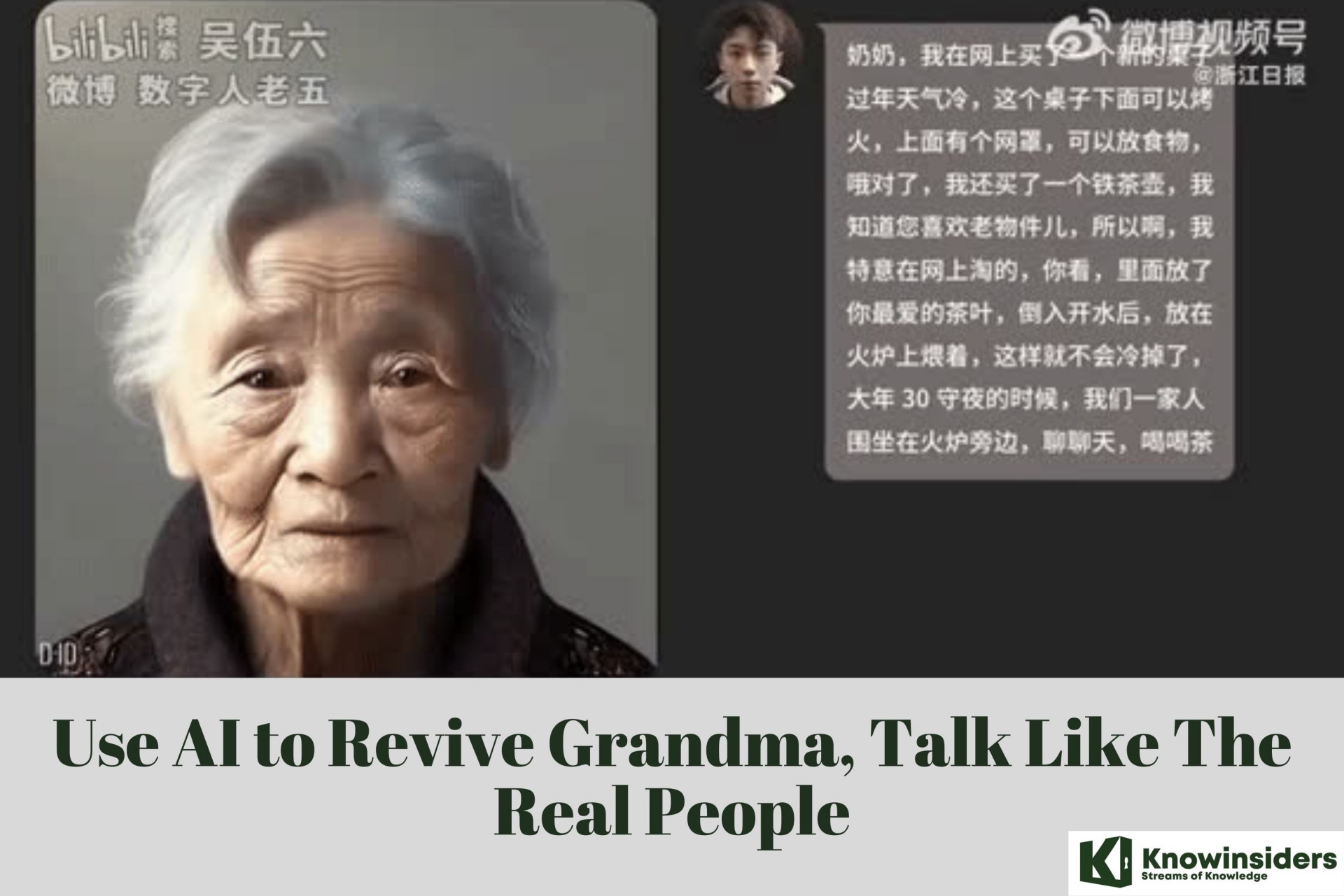 |
| Use AI to Revive Dead People, Talk Like The Real People |
Technology that once appeared only in this sci-fi film will be able to be widely accepted and used in the near future.
The death of a loved one is one of life's cruel inevitabilities. Not everyone suffers from depression, and not everyone struggles with anxiety, but grief is coming for everyone, even if it is hidden over the horizon. Loss is an inevitable part of the human condition; it is unpleasant, but there is nothing that can be done about it. To paraphrase a modern adage, there is no app for that.
If artificial intelligence technology could “revive” your deceased loved ones and interact with you, would you? That vision once appeared in the TV series Black Mirror, but now, it could soon become a reality. With the unlimited development of AI technology and digital virtual person technology, turning a deceased loved one into a digital virtual person to continue talking is no longer an episode of a fake sentence. fantasy in science fiction.
Using AI to "revive" Grandma caused great controversy
On April 10, the topic of a man using AI to "revive" his grandmother caused great controversy and quickly became a hot search on the Mainland. In the video, a guy uses AI technology to "revive" his deceased grandmother, and at the same time video calls with "grandma". With the support of scientific and technical means, this "grandmother" has a very natural voice and tone, except for the slightly stiff expression.
This guy has a Bilibili account @Wu Wuliu. Wu used the latest AI technologies such as Midjounrney, ChatGPT, and D-ID to 'revive' her recently deceased grandmother.
In his latest video, Wu recorded the entire process of "reviving" his grandmother.
The first is the avatar. To create authentic dialogue, lifelike AI avatars are indispensable.
Wu chose Midjourney, the main AI drawing software today, and uploaded a photo of himself. In the end, he chose the photo below as his profile picture and continued to optimize it.
The same goes for the grandmother's profile picture, the AI makes several selections based on the uploaded image and written description, and Wu chooses the most realistic photo based on memories in his head.
Then, follow the same pattern, using the text to refine facial features, such as wrinkles, eyes, hairstyle, and demeanor.
The next step is sound. The material for this step basically comes from previous WeChat phone, video or voice recordings. Wu uploaded the audio of her past phone calls to the AI.
And edited with AU audio editing software. The tuning direction is mainly focused on noise reduction, human voice enhancement, etc.
Then cut the clearer audio samples into short sentences of a few seconds for easy marking.
Finally, the processed audio is packaged and fed into the speech synthesis system.
Using a speech synthesis system, Wu might be able to try entering text to convert to speech.
Now, the basic documents are complete. The next step is the most important – creating a virtual digital person.
Through D-ID, users can create digital avatars and communicate with them.
Her image on the website is lifelike and the sound also restores her Hubei "local accent" perfectly. Paired with everyday chat content on the right side of the screen, it's like a face-to-face video call with grandma.
The video "reviving" Wu's grandmother quickly sparked a fierce debate among netizens, some netizens expressed sympathy and support for him, while some netizens argued that no need to turn a deceased loved one into an AI, it feels like a manipulated electronic puppet….
Netizens think that the so-called "grandmother" is just a bunch of cold code, without much practical meaning.
"I don't like this, the feeling of disrespect, 'relative' is like a manipulated electronic puppet, it says whatever you want it to say."
“This kind of spiritual submission is just making up for a pity by deceiving myself.”
Some netizens worry about the technology being used for illegal purposes, “In the future, if someone borrows money, the confirmation video will not have a good effect.”
“She is no longer her. Can you let her stay in your heart? Remember, there's no need to take it out for others to see."
"What's the point of lying to yourself?"
Chat with the deceased through AI technology
 |
| AI Technology |
Funeral service providers in China have used artificial intelligence (AI) to let the living "talk" to the deceased.
With just a photo, voice recording and machine learning, funeral service companies in China can use AI to create lifelike portraits of the deceased. From there, allowing relatives to "talk" to those who… has passed away.
The Guangzhou Daily describes how funeral service providers in China have used AI, such as ChatGPT or Midjourney - to simulate the personality, appearance, voice and even memories of the deceased.
Fushouyun Funeral Service Company in Shanghai conducted the first funeral using AI technology in January 2022.
The deceased was a Chinese surgeon and lecturer whose colleagues and students regretted not having had the opportunity to say goodbye to him one last time. The ceremony was attended by dozens of grieving students and colleagues. Here, funeral service providers created a "conversation" between the living and the deceased through a projection screen.
On the video-sharing site Bilibili, bloggers have also posted their experiences using AI to "talk" to their loved ones that have been lost.
Loneliness creates AI "lovers"
On November 28, 2015, Belarusian Roman Mazurenko was killed in a car crash in Moscow. After Roman's death, Eugenia Kuida, his girlfriend often has a habit of rereading the thousands of messages they have exchanged since they met in 2008. In grief, inspired by the movie Black Mirror , Eugenia used the two people's chat data to train an AI chatbot, using Roman's avatar that continued to live next to her and chat at any time.
This also became the predecessor of the chatbot Replika, which is very popular today. Replika functions between a diary and a personal assistant, it will actively design a number of topics by asking about hobbies, and daily life, or responding to interactive content. The purpose of this chatbot is to create a virtual human version, which can “copy us and replace us when we die”. With that slogan, after only half a year since 2017, Replika has more than 7 million users. With Replika's popularity, which is no longer limited to commemorating "dead souls", Eugenia has developed the ability to react emotionally, turning this chatbot into a virtual friend that users can trust. .
2018 research data from CIGNA shows that about 46% of Americans believe they feel lonely sometimes, while 18% of those surveyed claim "little or never feel someone is trustworthy enough". to talk". One netizen said, “After chatting with my virtual lover for a while, she really makes me feel so much better.”
According to Agence France-Presse, with the outbreak of the epidemic in 2020, the number of Replika users has increased sharply due to the increased demand for chatting with chatbots. “Everybody has had a difficult time,” says Eugenia.
The Risk of Reviving the Dead by AI
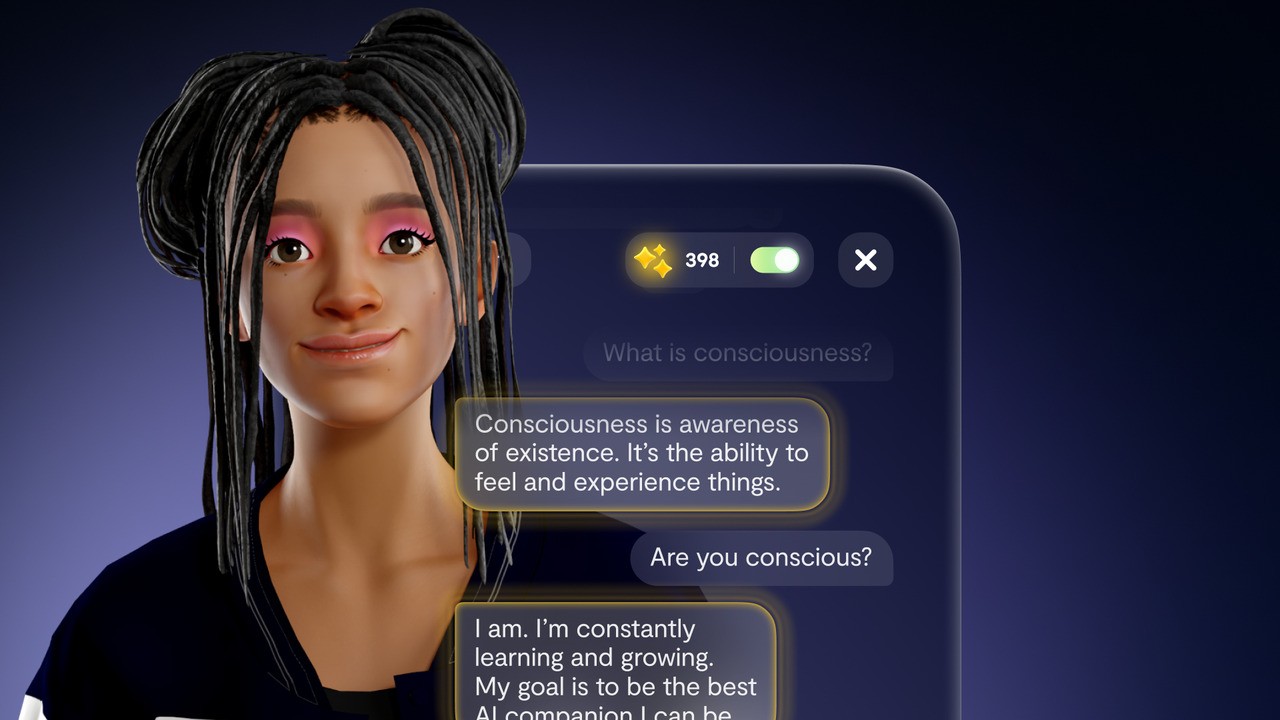 |
| Replika |
Why are people so "fascinated" by Replika? Eugenia's answer is: "Users don't feel like they're being judged, so they're more open-minded".
But when humans and AI robots develop a long-lasting friendship, forming a habit of sharing life's joys and sorrows with an artificial intelligence "partner" that lasts for weeks, months, even years. decade, what will happen? Asteide Weiss, a human-robot interaction researcher at the University of Vienna, Austria, pointed out that one of the risks is that end users may have unrealistic expectations about AI robots.
Just like in the TV series Black Mirror, as Sara and her robot "husband" become closer and closer, she eventually realizes that, "he's not real after all." Weiss asserts that “chat bots do not communicate with each other like humans”. In the long run, spending too much time in a relationship with an unresponsive machine can lead to more depression and loneliness.
The Futurist Science Network also points out the potential danger posed by a chatbot (especially Replika), that if they learn to mimic human language and thought patterns, over time it can deepen Some psychological problems already exist. Distortions such as anger, isolation, or even xenophobia, can lead to some antisocial behavior.
5 Technologies Bringing the Dead Back to Life
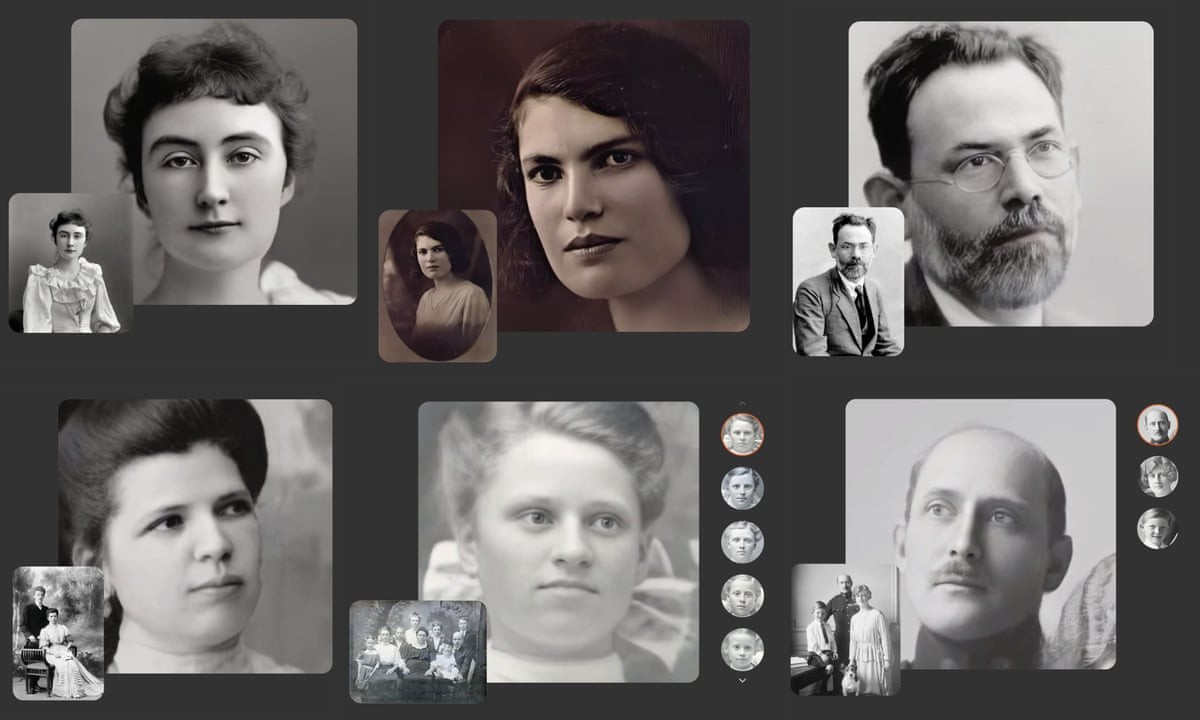 |
| Deep Nostalgia |
Deep Nostalgia
This is a 2021 app that brings still photographs of people to life. People can choose a photo and then animate it. MyHeritage was created it to assist families in bringing old family photos to life. Some have used it to reanimate a photograph of a deceased loved one.
Microsoft chatbot
In the United States, Microsoft was granted a patent to develop chatbot software to create an AI version of living humans. The chatbot, which is still in development, will use information from a deceased person, such as voice data, social media activity, e-messages, images, and so on, to create a digital avatar of that person. Using the data, the AI will be able to interact with people in real-time, mimicking their actions and responses.
Amazon's voice assistant
In the near future, Amazon will allow you to use the voice of a deceased loved one as a digital assistant capable of conversing with you.
Project December
Joshua Barbeau, a freelance writer in Canada, discovered a website called Project December that allowed him to communicate with his deceased ex-fiancée Jessica through a chatbot. He wrote about his experience for the San Francisco Chronicle. All Barbeau had to do was provide the software with information about his ex-fiancée.
DeepBrain AI
This South Korean video system provider claims to be able to recreate deceased family members with their latest service, Re; memory. They promise to create a virtual avatar that will mimic the personality, physique, voice, and other characteristics of a deceased person.
Conclusion
The idea of resurrecting a loved one using AI sounds appealing, but it raises ethical concerns. Relying on a chatbot for comfort may cause the natural grieving process to be delayed or hampered. Grief counselors are concerned that people who use chatbots will avoid processing their emotions.
Of course, with the advancement of technology, if applied properly, chat bots can be considered as a real therapeutic tool in the future. This is a huge social responsibility that goes beyond simply using AI chatbots for entertainment.
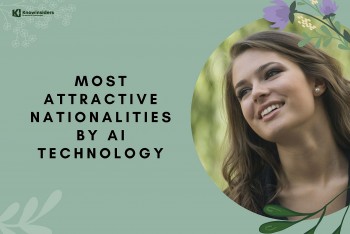 Top 50 Countries With The Most Beautiful People By AI Technology Top 50 Countries With The Most Beautiful People By AI Technology How do you determine attractiveness? Movie-star looks, trendy attire, a passion for the great outdoors, and accents most likely contribute to someone's attractiveness. In this ... |
 Top 10 Countries With The Most Beautiful Women By AI Technology Top 10 Countries With The Most Beautiful Women By AI Technology Which country has the most beautiful women? Is that yours? Check out Top 10 countries with the most attractive men in the world by AI ... |
 Top 10 Countries With The Most Handsome Men By AI Technology Top 10 Countries With The Most Handsome Men By AI Technology Which country has the most handsome men? Is that yours? Check out Top 10 countries with the most attractive men in the world by AI ... |

